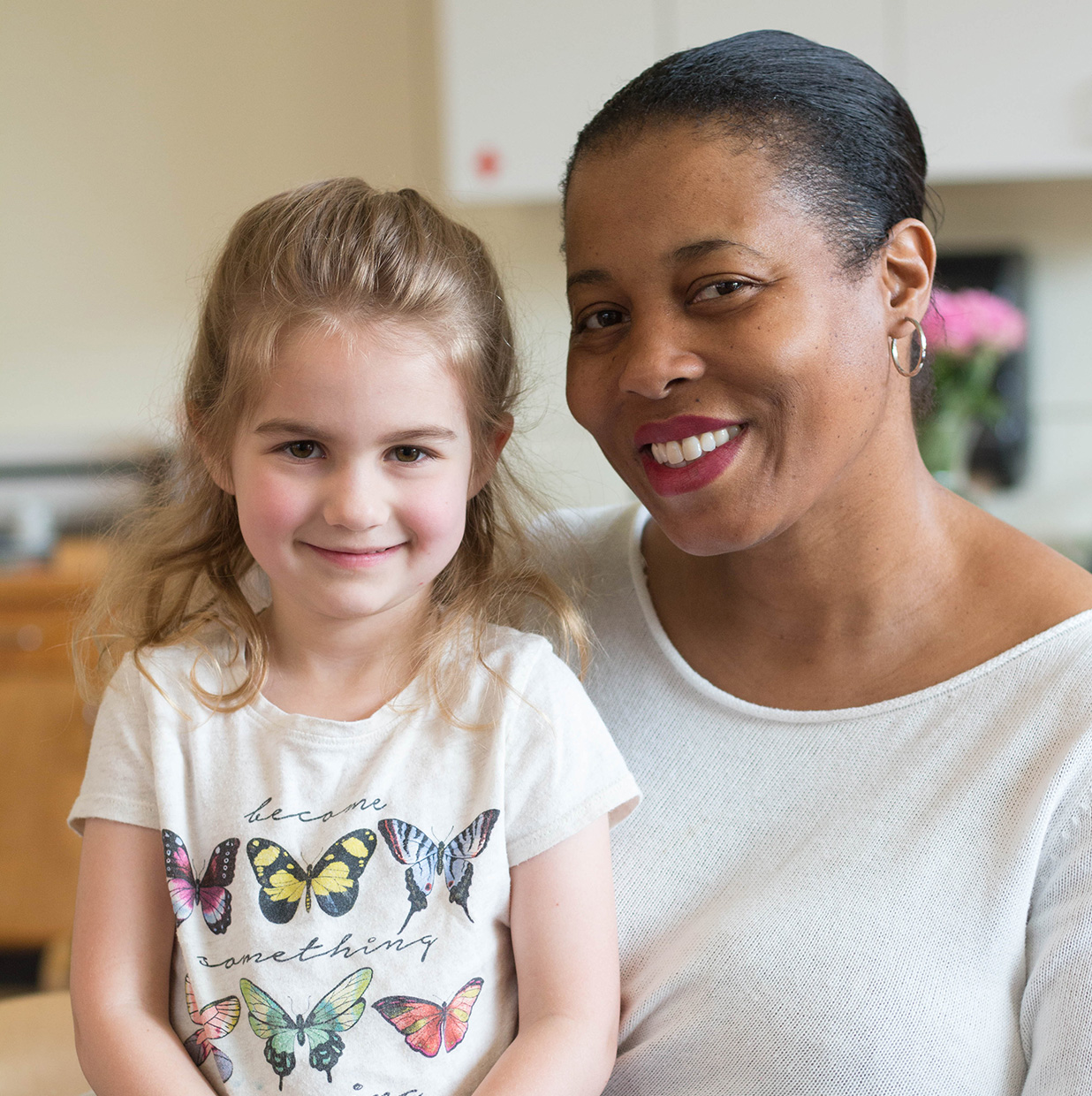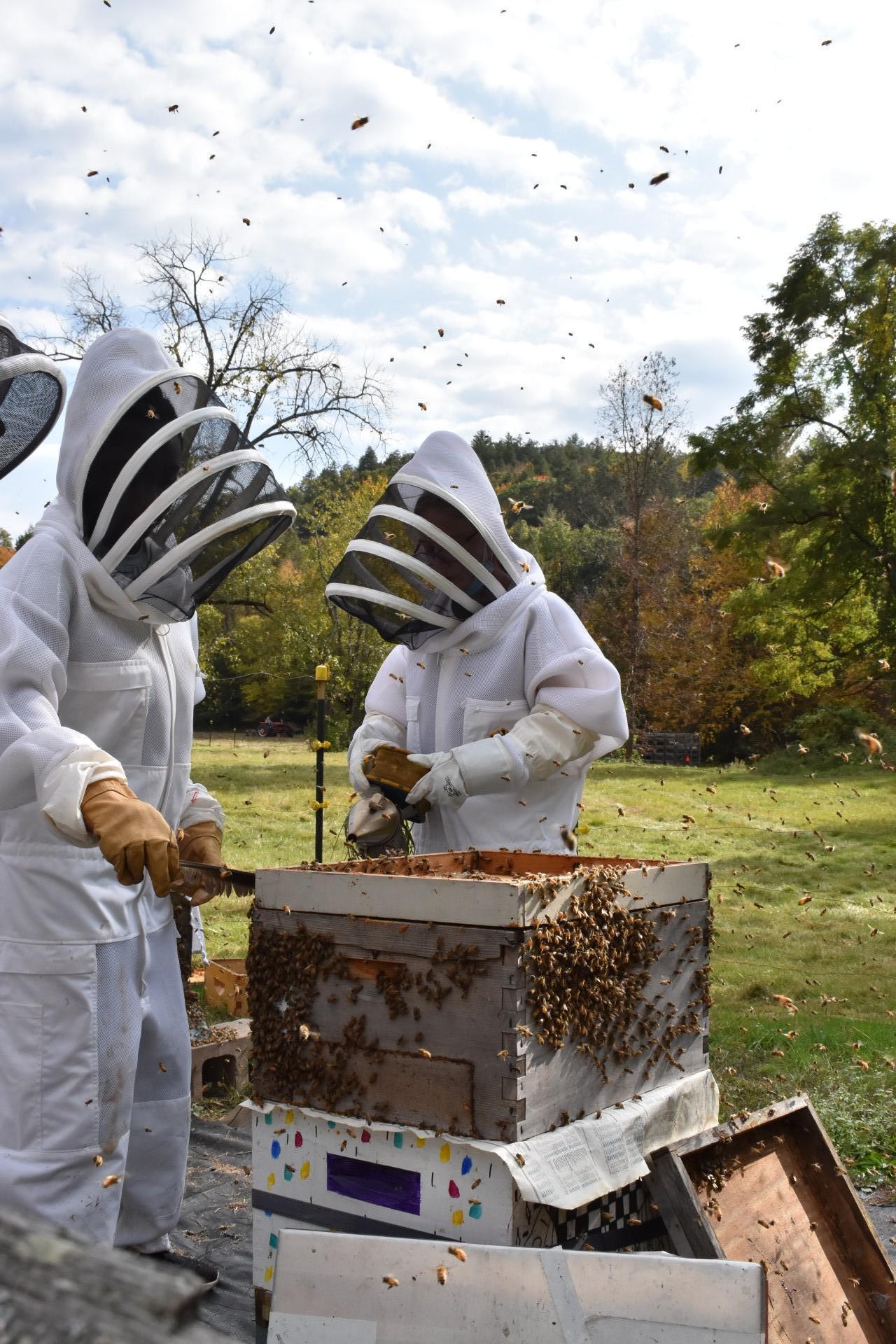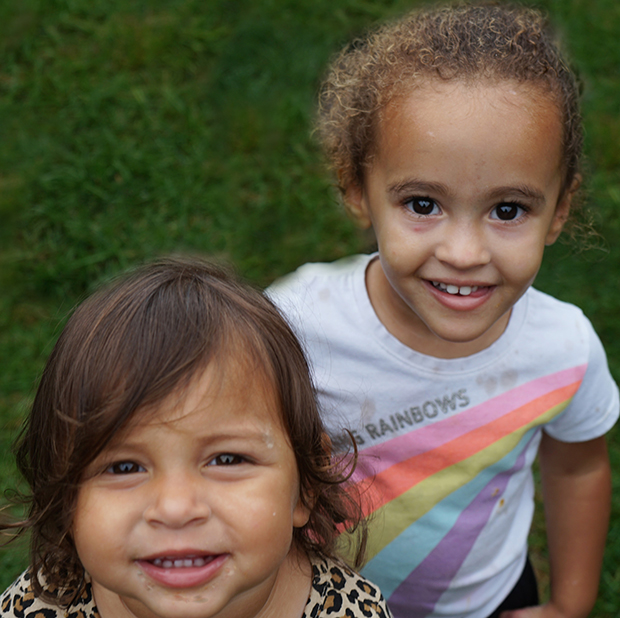Collaborate. Communicate. Connect with One Another. World Language. Humanities. Literature. Mathematics.
The Adolescent Program centers on rigorous academic studies and purposeful, land-based work that emphasizes the interconnectedness among all academic subjects.
Adolescent Program
The Adolescent Program at the Montessori School of Greater Hartford demonstrates consideration for the appropriate intellectual, social, physical, aesthetic, emotional and ethical development of students in all aspects of school and student life. The campus is located on a 30-acre farm with goats, sheep, chickens, honey bees, gardens, fields, woodlands, ponds, streams and a river. The environment, the curriculum and the guides (teachers) at the Adolescent Program provide opportunities for students to reach their maximum potential.
The Adolescent Child
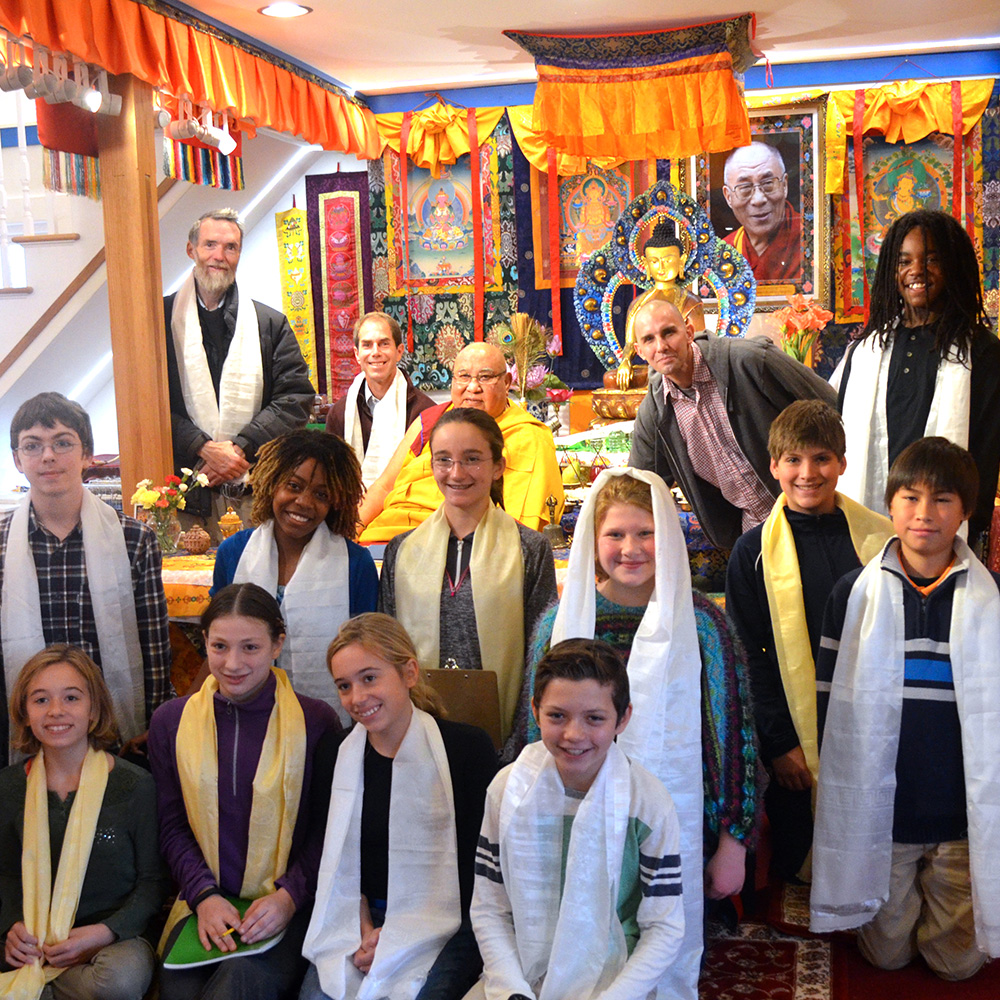
Intellectual
The students’ intellectual needs are met because the curriculum is rigorous, accountable and in-depth, and the guides are prepared to offer clear, age appropriate academic lessons with assignments, assessments and evaluations that meet contemporary standards and go beyond. The students study language arts and literature; mathematics including and exceeding Algebra 1; interdisciplinary sciences that connect to the biology, chemistry, ecology and physical sciences of the farm and to the abutting land and water bodies; humanities and history; Spanish language; and art, music, fitness, yoga and other specials. In keeping with the adolescents’ intellectual need for engagement through work and sense of purpose, the students’ curriculum merges practical hands-on experiences with theoretical, academic learning.
Social
Similarly, students’ social needs are met in our Adolescent Program, as the adolescents collaborate, communicate and connect with one another in order to run competently their small business and the small farm. Adolescence is a social age, and the students have opportunities throughout the day to socialize as they do purposeful work in the garden, in the kitchen and in the animal barn. Their academic work is often done in small groups that require conversation and interaction. Also, older students regularly give lessons to younger students, in an exchange that is both educational and social. Montessori termed young adolescents “social newborns” and by that she meant that they were entering the world as adults for the first time, and they needed to build a sense of valor, usefulness and identity by working with their hands, heads and hearts in a community. Our school environment is that productive, social community.
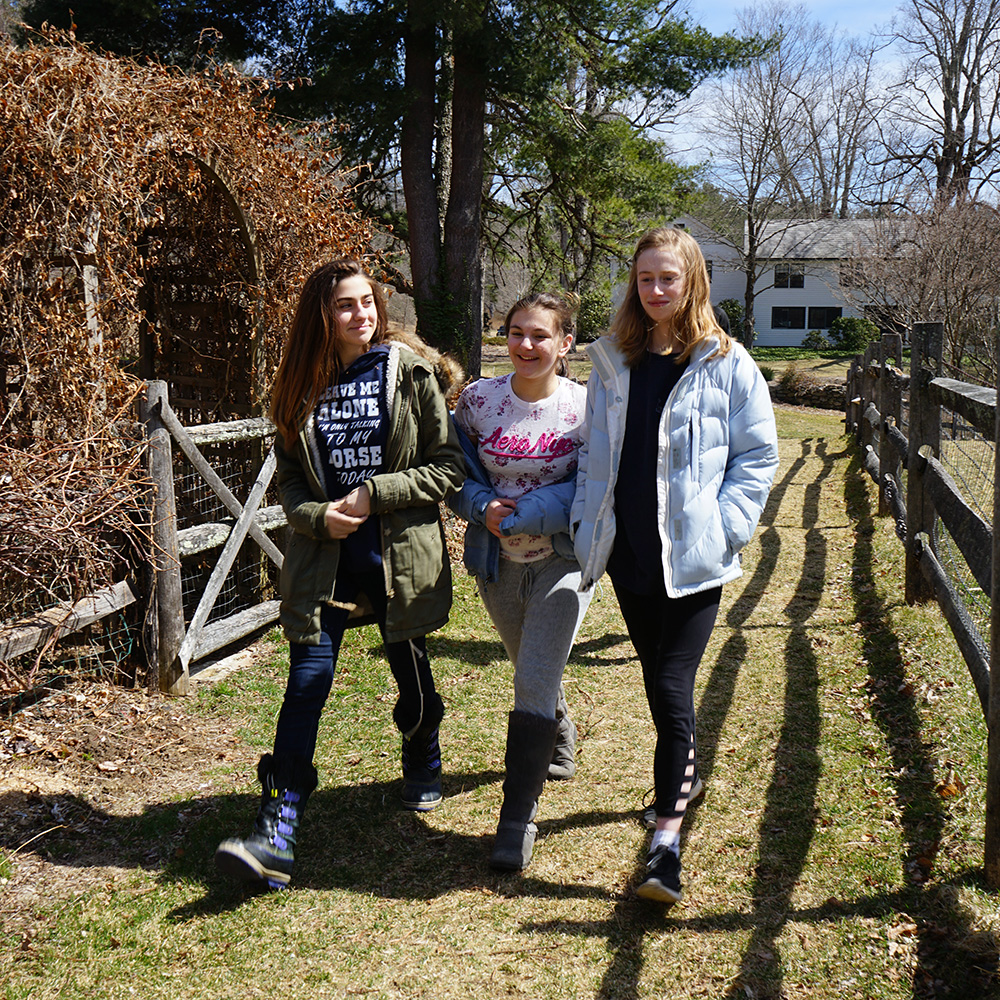
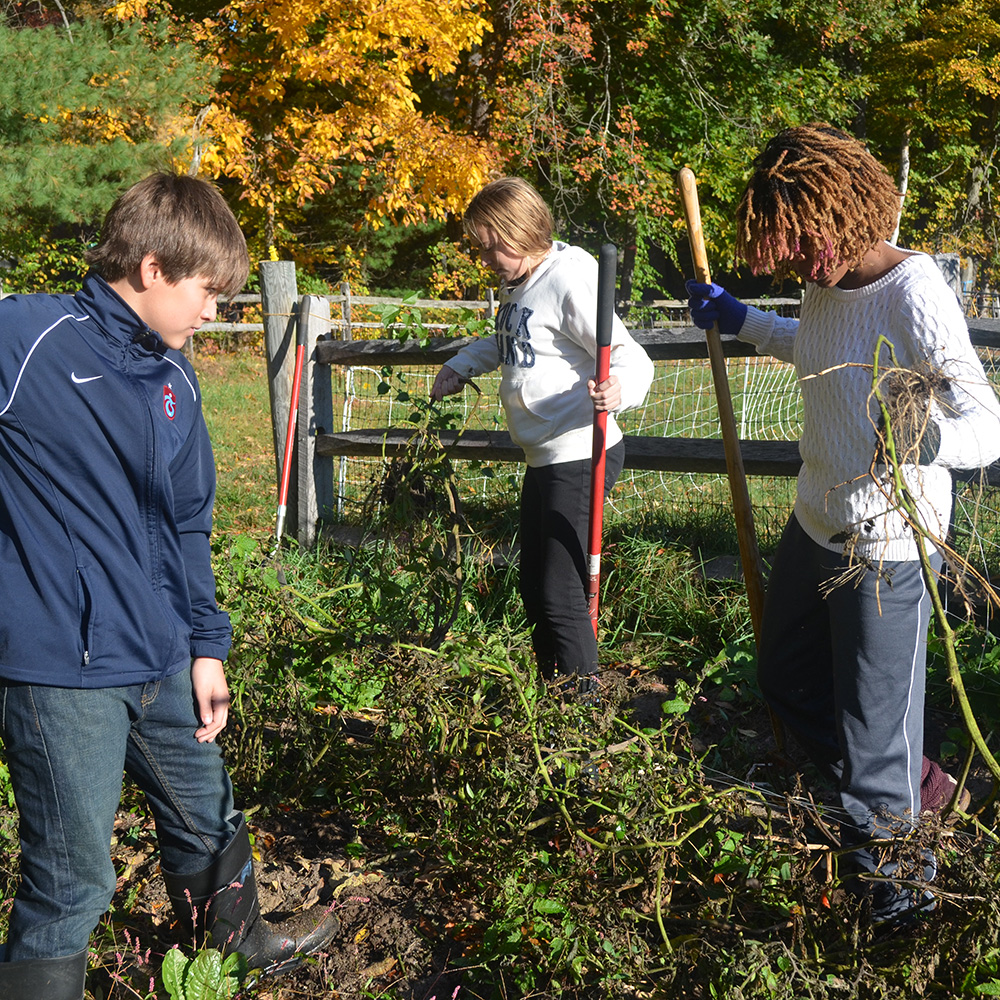
Physical
Within the community, the adolescents have many opportunities to move and explore, ensuring that their great need for physical activity is met. They start every morning with barn work that includes cleaning stalls and coops, filling water buckets, lugging hay bales, taking wheelbarrows full of manure to the compost pile, milking goats and walking sheep. They maintain a vegetable garden that requires fitness as they dig and weed. In addition, students are outside every day after lunch for half an hour, playing different sports depending on the season. They skate on a pond in winter, Frisbee, soccer, kickball, Capture the Flag and much more in the fall and spring. The group hikes in the fall and spring and does yoga and martial arts indoors in the winter.
Emotional
Students develop emotionally and ethically in this environment that gives them the very real responsibility of caring for animals, dairying, and growing, cooking and preserving food from the garden. They learn the importance of individual contribution as well as a just system of the division of labor. They learn the relationship between the human-built and natural worlds, and assume adult-like work roles that have implications for themselves and their community. They gain a sense that all work is noble, for each person’s role on the farm and in the classroom is a cog in the wheel that propels the entire community forward. Students grapple with social and moral problems, such as the right use of the natural environment and the ethics of science, and they participate in council meetings that give everyone an equal voice in the classroom. Further, they abide by a student-written Code of Ethics that preserves the dignity and integrity of every student and teacher in the program and guarantees good stewardship of the land, animals and buildings.
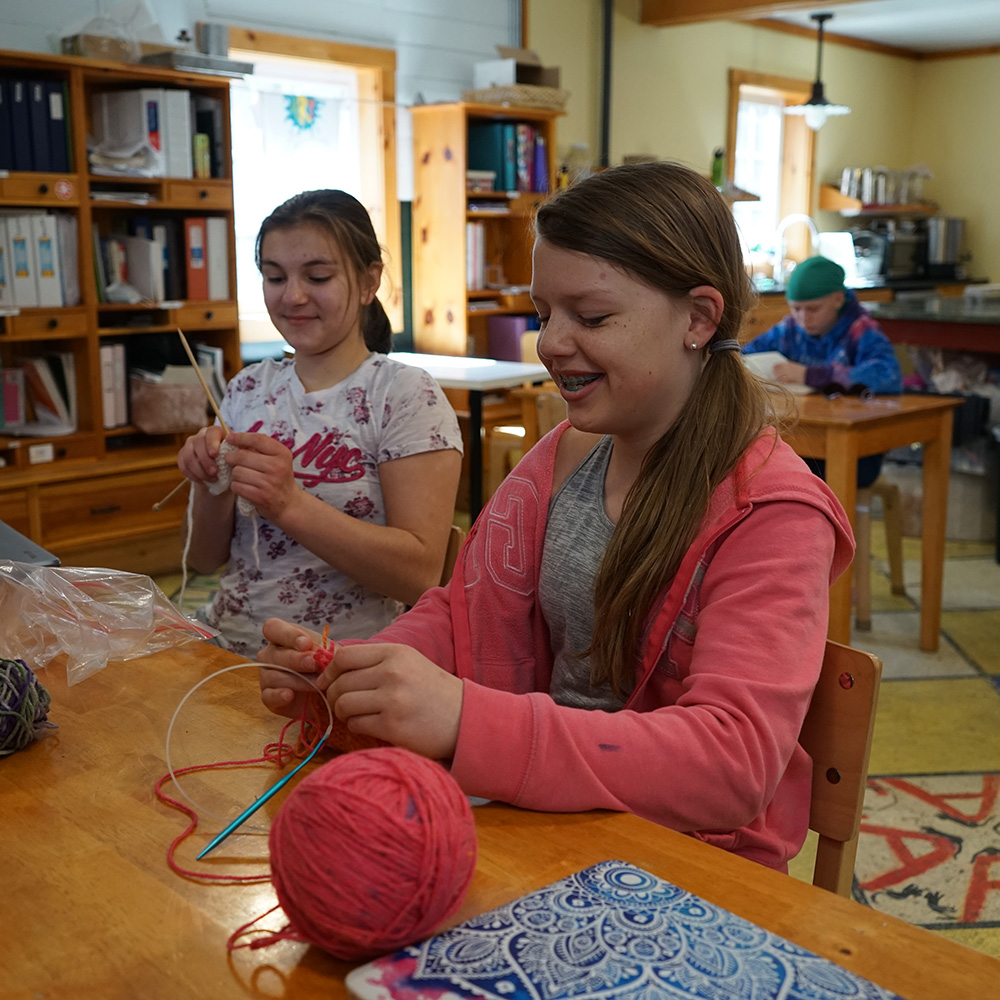
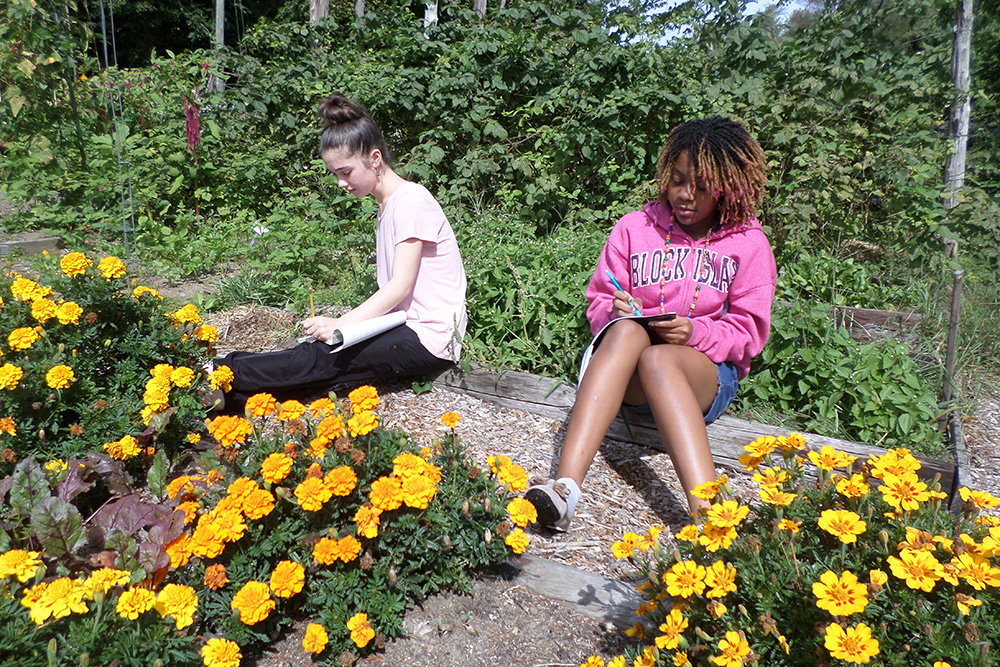
Community
The program satisfies the adolescent’s sensitivity to issues of justice, his/her need for a sense of belonging and self-worth, and his/her desire for creativity, self-expression and productivity. The academics, the management of the farm and the small business, and the opportunities for group collaboration and individual success meld to nurture a community of thriving young adolescents.
Read More About the Adolescent Program From the Students
The Adolescent Education
The Adolescent Program centers on rigorous academic studies and purposeful, land-based work that emphasizes the interconnectedness among all academic subjects. Through both traditional schoolwork and varied hands-on activity, the adolescents gain insight into their own capabilities and how they might apply them some day to life and to livelihood. The basic premise of the curriculum, which aims to link practical experiences with theoretical knowledge, is that all living and nonliving things on earth are connected and interdependent, and that the world is an interdisciplinary place; therefore, in a Montessori program, life and learning are viewed not as separate disciplines, but as one and the same. Learning becomes an essential and meaningful part of life, rather than a remote “schooling.”
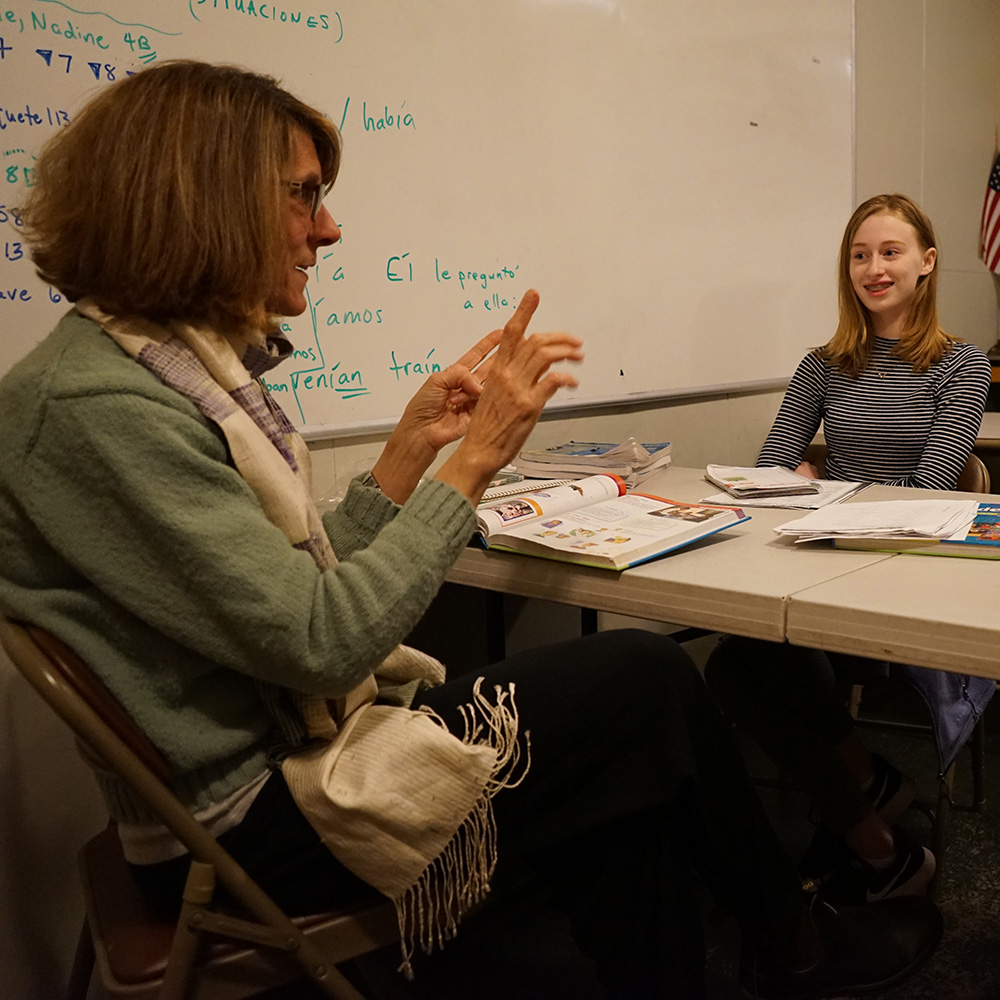
World Language (Spanish)
The goal is that the students be eager to speak, read, understand, write and enjoy the Spanish language. The hope is that they become appreciative of other languages and cultures, expand their understanding of the world and learn to communicate in a language other than their own. The students have daily lessons and do exercises that build vocabulary, grammar, and reading comprehension skills. They participate in dialogues, read aloud, listen to spoken Spanish, and converse. Further, foreign language learning enhances intellectual growth and memory, hones sensitivity to language and an ear for listening, and improves a student’s understanding of the grammar and syntax of her own language(s).
Humanities
This area of study strikes a balance between detail and generality. At times, the class examines history through a wide-angle lens, with timelines and broad overviews; and, at other times, the class studies history through a telephoto lens, investigating in detail a particular event, person, civilization or trend and how it relates to the whole. Topics include scientific discoveries, geographical explorations, migrations, religion, patriotism, and wars and conquests of empires in relation to their ideals and moral standards. When possible, humanities projects are tied to the historical and cultural resources of the local community, for pedagogy of place is the hallmark of Montessori education at the adolescent level.
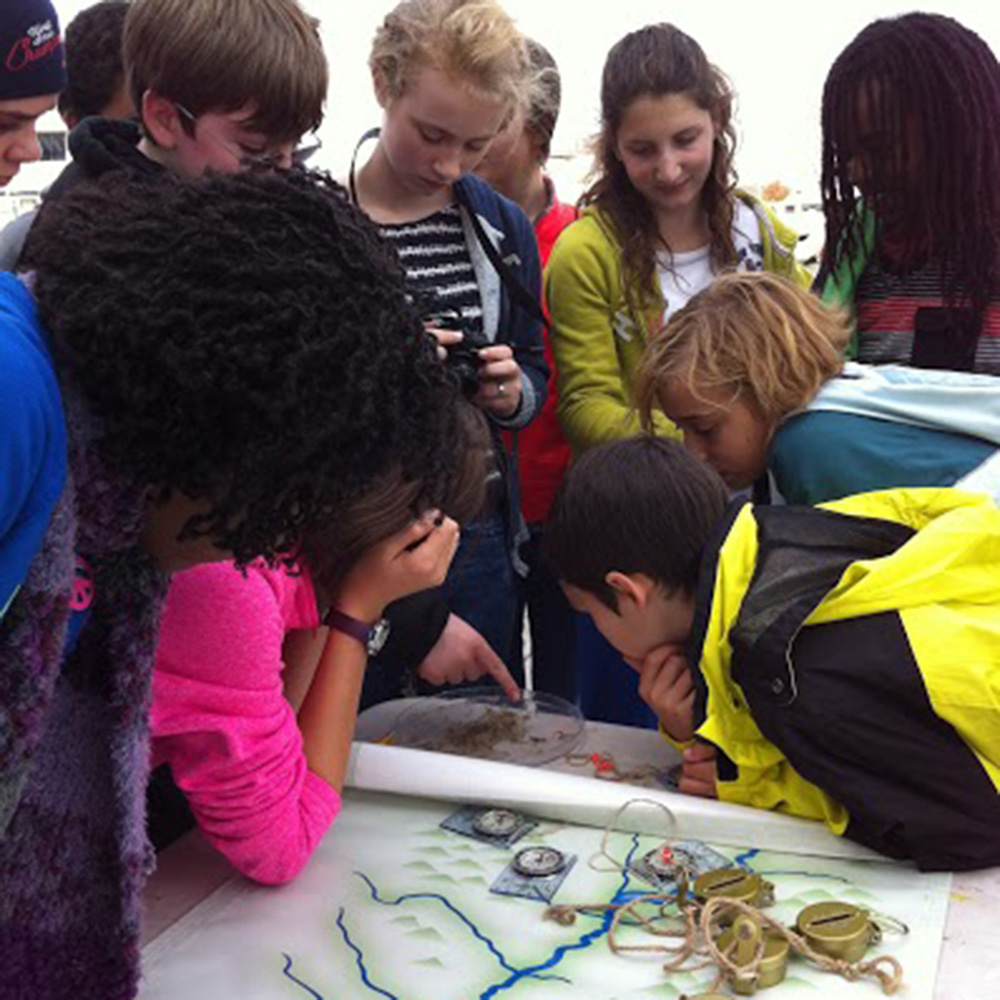
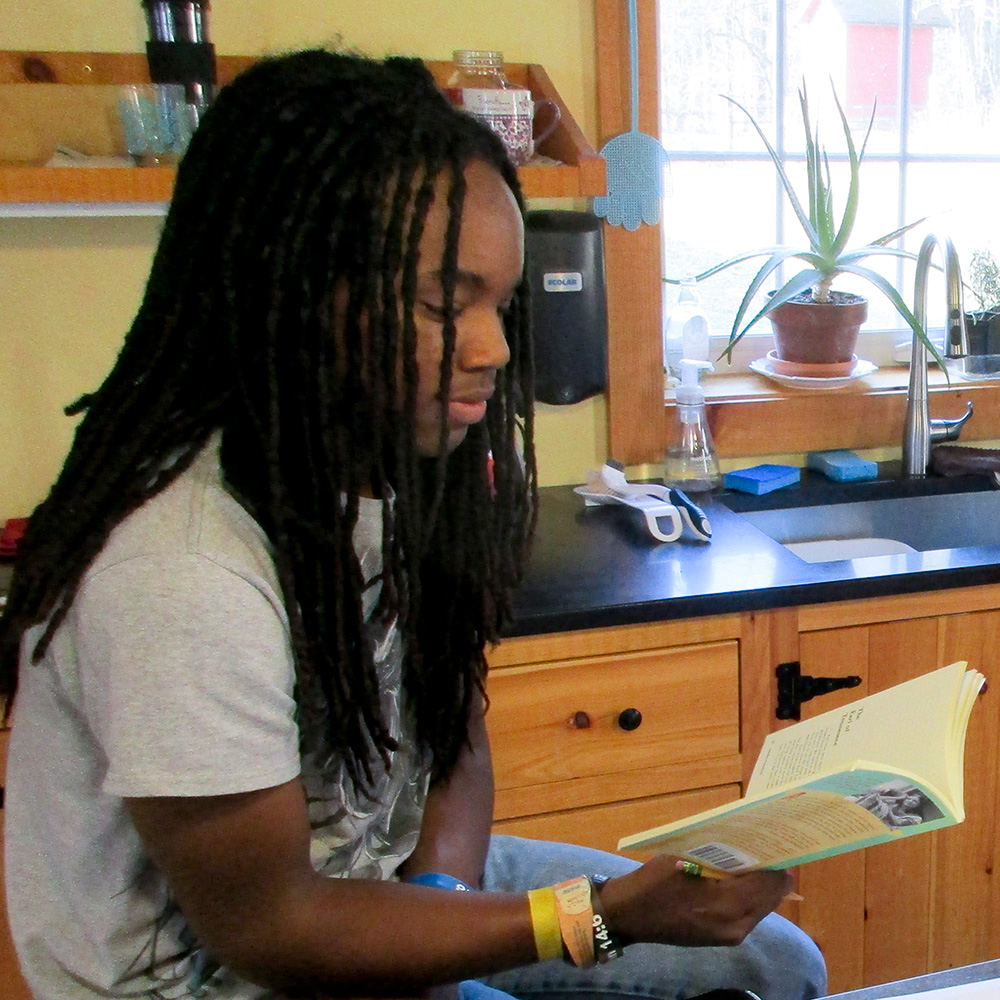
Language and Literature
There are opportunities throughout the day for the students to express themselves verbally, to discuss their thoughts and ideas, and to communicate with both peers and adults. More formally, discussions of novels, plays, short stories and poems take place in seminar format in order to foster a deeper, collaborative approach to understanding a piece of work and to encourage the students to articulate thoughts about specific themes and to stay on topic. The students are required to write almost daily, either on a given topic or one that they have proposed, and they are often asked to write multiple drafts. They write across disciplines and genre, including essays, poems, journals, letters, reviews, personal narratives, lab reports, research reports, histories, biographies, and literary analyses and criticism. They become familiar with literary terms and concepts that they can use in their own writing and understanding of books, themselves, the world, the truth and human nature.
Mathematics
In mathematics, we aim for fluency with mathematical concepts, competence with the basic skills needed for the fluency to develop. We also practice mathematical thinking and the logic needed to convince others, to be convinced by them, to change one’s mind when necessary, and to hold one’s ground when needed. We also aim to ensure that the students have the base they need for tenth grade high school math work. That means basic algebra – evaluating & simplifying expressions, and solving equations - as well as an introduction to many topics, among them: analytic geometry (1st degree functions in depth; other common functions in an elementary way); hands-on practice with probability, fundamental ideas in statistics, and using the power of algebra (starting with the answer) in word problems. The farm/business provides opportunities for students to see the efficiency of math and its notation, and to solve problems meaningful to their lives. It also develops skills in organization and presentation of information and thought – the same niche as word problems in textbooks, but in a more palatable way.
Basic student work is very much self-paced. Students work through a series of units, receiving formal lessons as needed. Each new unit, after the first one, introduces two or three new skills, while reinforcing already learned skills with examples slightly harder than the previous unit, but fewer in number. The idea is to make the skills part of a readily available repertoire so the students will have a solid platform for future studies. Additionally, we have “seminar problems” with one to two weeks to complete. These are problems that need original mathematical thinking, without algorithms to fall back on, often with multiple possible routes to a solution. Students work one night on their own with these problems; after that they can collaborate. Half the work is solving, the other half is then organizing their work in order to present it clearly and convincingly in written and oral presentations. Projects can also be incorporated into the schedule on an ad-hoc basis, following the interests of the students, or desire of the guide. We start geometry that way with a study of straight-edge and compass constructions, and propositions in book 1 of Euclid (which starts with some proofs of constructions), before doing a formal course in geometry for those who will do both algebra and geometry with us. Students who need shoring up in arithmetic skills gain some backfill because we place extra emphasis on showing the unity of many algebraic and arithmetic techniques. We aim to equip students well for future math studies while helping them see the beauty of math and its exciting role in cultural history.


Science/Occupations
This area of study includes ecology, biology, chemistry, physical sciences, geology, botany, zoology, physiology and anatomy, and the students take advantage of the farm environment as a point of departure for many of the academic topics in this area. Work in the garden, kitchen, barn, fields, woods and water bodies provides access to science in a way that is more compelling, urgent and purposeful than abstract study alone, though conventional textbooks complement and add depth, vocabulary and structure to the “occupations.” Students are given specific science lessons, assignments and assessments in conjunction with the work of managing the land and maintaining the farm, which includes honey bees, dairy goats, laying hens, fiber sheep and a vegetable garden with compost and irrigation systems.
Art
In art, students explore a rigorous art curriculum. There is a heavy focus on collaborative work and support of the academic curriculum. Students are led through guided exercises designed to foster cooperative work as well as independent art exploration. Team building exercises foster an attitude of cooperation. Lessons enhance academic studies and themes while maintaining a focus on technical skill. Other projects center on enhancing sketching and modeling of still life objects as well as imaginative imagery. Mediums include, but are not limited to, marker, graphite, charcoal, pastel, watercolor, paris-craft, clay and acrylic paint, as well as film making. Other aspects of the art curriculum involve research on various historical and contemporary artists that exemplify different art media techniques as well as discussions about art aesthetics and art criticisms.

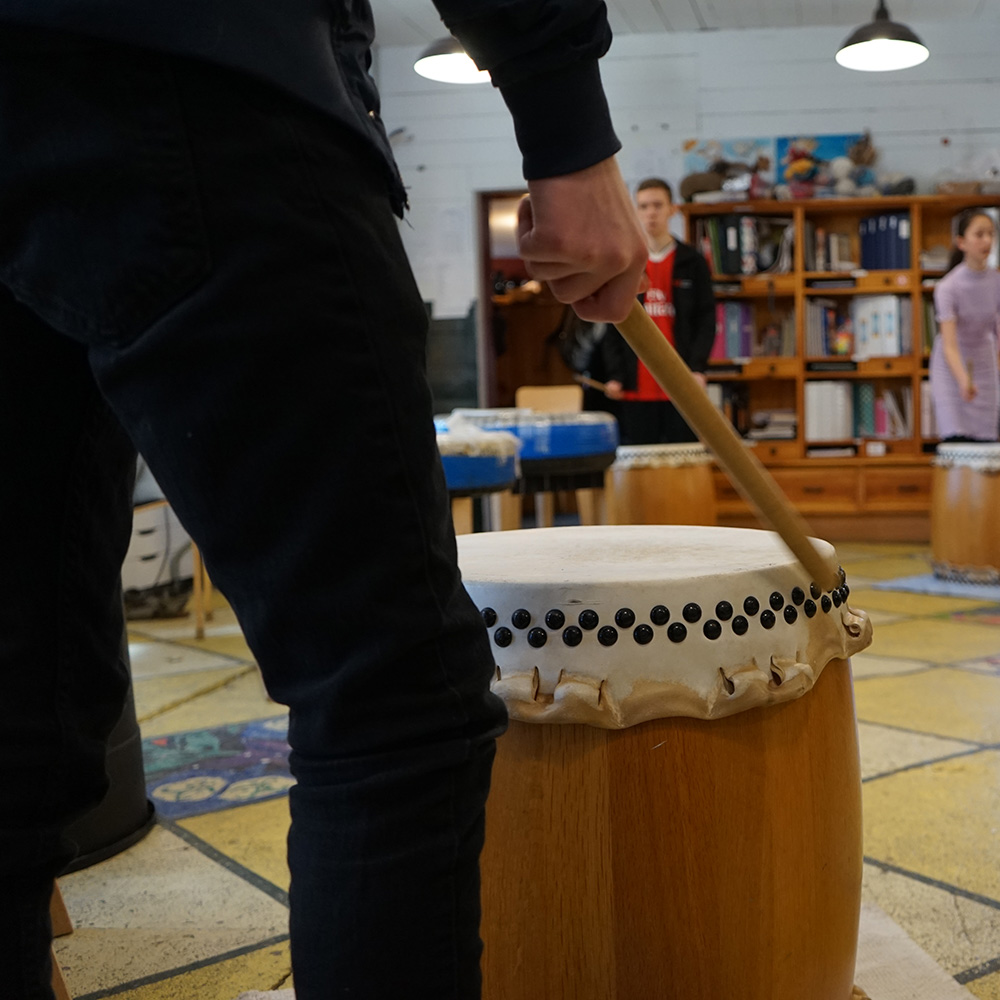
Music and Theater
The objective of the music program at the Adolescent level to instill a lifelong love and appreciation of the arts and culture through experiential, integrative learning. Students will explore the fundamentals of music theory, basic movement and stage performance. Some of the many topics explored include, Western music notation, compositional technique, music and theater history, improvisation and method performance. We will utilize a variety of instruments to delve into the art of self-expression. Upon completion of this course, students will have the necessary skills to listen and analyze music informedly, present themselves with confidence in any setting, and gain a deeper understanding of the value of their own creative ability.
Physical Education
Students are offered weekly, structured physical education classes that encourage the development of good fitness habits. By introducing fun-filled and meaningful activities the students learn a variety of skills, as well as the confidence to explore new physical and/or movement challenges. Sports based games, yoga and martial arts are among the rotations offered. Our goal is to promote regular participation in physical or recreational activities that encourages a healthy active lifestyle.
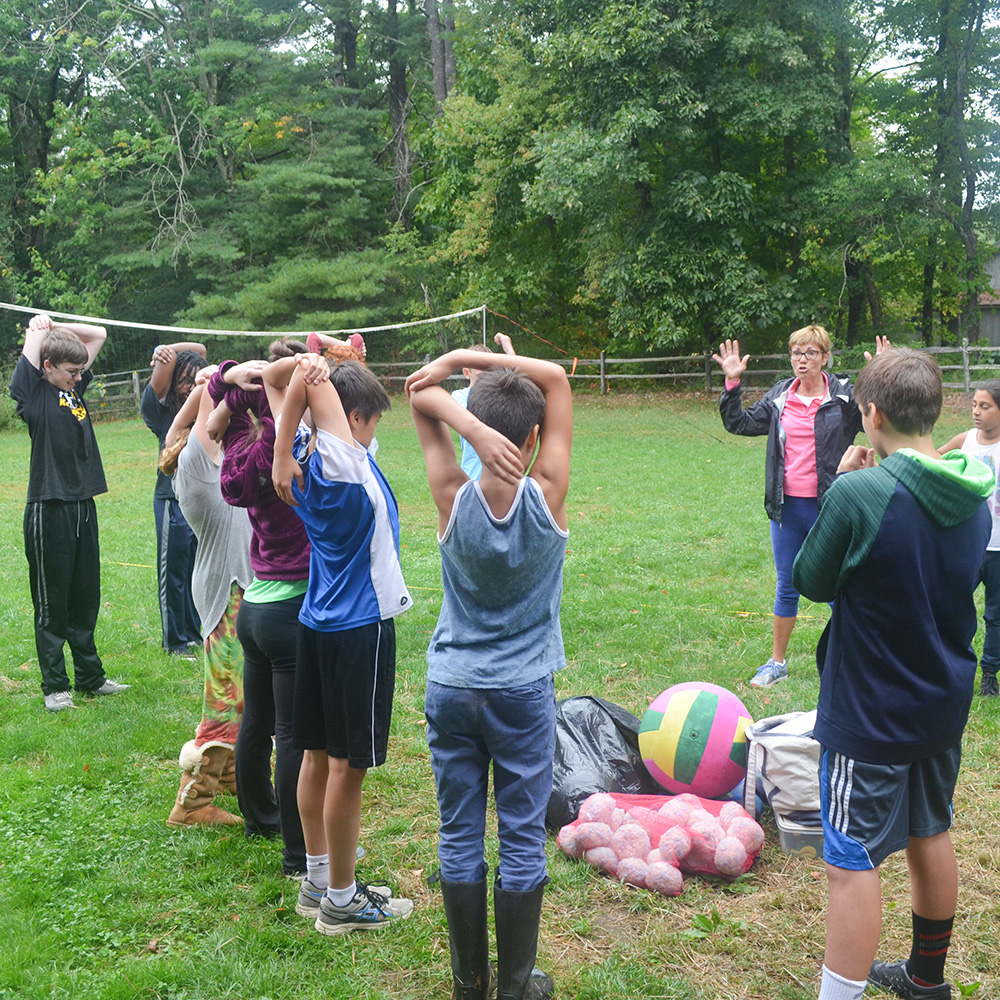
Parent Observations, Student Visits
Parents of prospective students are encouraged to experience an Adolescent Program for themselves by planning a visit. Visiting parents receive a full tour of the Millstream Farm and are welcome to observe the classroom. Prospective students join the classroom for a minimum of one full day as part of the admissions process. Open House are held in the fall and spring. Check the MSGH calendar for specific dates.
Program Details
Teachers: Our Adolescent Program teachers have Masters-level educations and most have completed the NAMTA/AMI Orientation to Adolescent Studies recognized by the North American Teachers Association (NAMTA) and Association Montessori Internationale (AMI).
Afterschool Program: The school day begins at 8:20 and ends at 3:00. An afterschool program is available at the West Hartford campus until 5:30, during which students may complete homework, read, engage in developmentally-appropriate games and crafts, and enjoy time outdoors.
Transportation is provided daily from MSGH’s West Hartford Campus. The bus departs at 7:40 and makes an additional scheduled stop on Route 44 to pick up students.
Transition: One of the most frequently asked questions of any Montessori school is: How will children adapt when they transition to a new school? What we have seen is that students successfully transition to the next level and consciously build on their Montessori experience, finding it has given them a solid academic base, along with a diverse set of skills, such as: time management skills, collaborative work skills, leadership skills and problem solving skills. Other observations are that Montessori students have faith in adults, display an understanding of community, and a willingness to do community service. For more information, check out life after MSGH. If you have more questions about this or other aspects of MSGH, please feel free to contact us.






